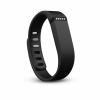Related Content
 |
FDA Won’t Regulate “Low Risk” Medical Devices It’s expected that a product such as a left ventricular assist device that helps maintain the pumping ability of a heart comes under the scrutiny of the FDA. But should wearables for healthcare that simply record heart rates and sleep cycles be regulated as medical devices? |
|
 |
Five Principles from Chess That Can Change Your Software Game When you start analyzing the two strategic activities of playing chess and developing software, you will notice they share many core principles. Defining a goal, recognizing patterns, and learning from mistakes are just some of the important concepts to keep in mind with both chess and software. |
|
 |
Predictive Policing Is on the Rise Traditionally, technology has been used in a reactive way to address a crime after it has happened. Recently, there's been a proactive trend towards predictive policing—especially through efforts by software giants such as Microsoft—to potentially curb a crime before it even happens. |
|
 |
Announcing Raspberry Pi 2 The next-generation Raspberry Pi 2 is now available, and when the big announcement was recently made, the website buckled with over one million more requests than it usually handles, according to the Raspberry Pi Foundation. |
|
 |
Report: Connected Cars Have Weaker Security Than We Thought Today's connected cars offer many technological conveniences. But with those features come some risks. The Wi-Fi, Bluetooth, and cellular connections in these cars can fall prey to hacking attacks, which can jeopardize people’s physical safety and private information—and the security is pretty lax. |
|
 |
Businesses Cash In on Open Government Data Access to data is becoming increasingly obtainable through open data projects that are now available globally, often sponsored by governmental bodies. For example, many real estate websites leverage federal housing data to power their information. How else can we benefit from open government data? |
|
 |
Why Physical Books Won’t Disappear Any Time Soon A recent data point in the world of e-reading versus traditional books is very interesting: Physical, bound paper books have shown more growth, selling 2.4 percent more books in 2014 than the year before, while e-books seemed to have hit a saturation point. It looks like the two options can coexist. |
|
 |
What If Accessibility Testing Is Not Done? Accessibility in software is emerging as a hot topic in 2015. We all know why we need to test that our products are accessible to people with disabilities, but Rajini offers some scenarios that illustrate the potential consequences of not creating an accessible design or environment. |




